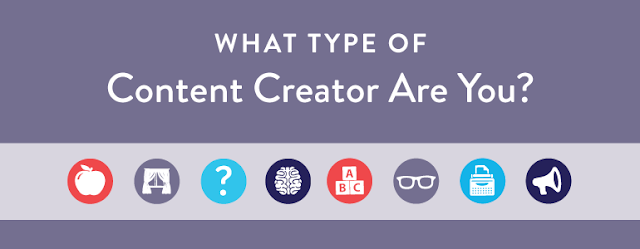Are you a conscious content creator?
This weeks blog is about being a conscious creator of content on your social media platforms.
I was assigned to read chapter 6 of Matt Ivester's book LOLOMG! This chapter is all about being a conscious content creator and the best ways to becoming one. First things first, what is being a conscious content creator? A conscious content creator is anyone social media platforms who thinks clearly about their posts and actions before sharing them. They have to decide how controversial they want to be, when the right time is, and how to create the best positive online reputation.
Ultimately, the first question is why? Why are you on social media and why are you posting the things you post? You have to analysis yourself and the purpose behind your posts. This will help you avoid making mistakes and possible regret. Another important point to make is your timing. If you post while drunk or at any other inappropriate moment, you should probably stay away from most social media. This is important because employers do keep an eye on employees social media. Conscious content creators are also thinking about their audience and if things are better kept in their private life more then sharing it on the internet. Creators also have to consider how controversial a topic or opinion is because you might get attacked online for certain opinions. In the long run you have to be extremely thoughtful and make the best decisions for yourself.
This chapter was an interesting easy read. It made perfect sense and I believe everyone should be more conscious of what they post. People, especially teens, would benefit greatly if they read this chapter.
This week I also looked up articles on media and communication. As a communications student it is important I learn how to be a professional who is conscious of my actions and opinions.
One article I found was The Top 10 Worst Communication Mistakes You Can Make. Some of these mistakes tie in with being a conscious content creator. Number three on the list is being unclear and how that can affect the communication between you and a colleague. It is important to be clear so that your message comes across without problems and misunderstandings. Number four is broadcasting a vehement political view, which means sharing your beliefs in an inappropriate time or manner. Number nine is being too negative, and this is true. If you are negative people around you won't want to listen to you or be around you. Your reputation is extremely important in a professional world. This article provides good advice for those starting in a professional career because it will help you be careful of your actions.
This next article is 6 Ways Social Media Changed the Way We Communicate. The beginning of the article talks about the top social media platforms and the demographic that are the primary users. But then it gets into how social media has created a sense of urgency and a need to share. This is crucial because it really affects people because they develop this need to share and then they dwell on comments and likes. Another interesting thing social media has provided us with is to make digital messages more personal. Because of platforms like SnapChat and Instagram we can upgrade our boring photos with funny filters and it transforms the communication between people. Social media has also provided the ability to broadcast moments live, which is extremely amazing. Just five years ago we didn't have that type of technology but we have advanced so much that anyone from anywhere can see what's happening on the other side of the planet. Social media has grown into a massive innovative giant that keeps evolving. This article was interesting from a communication standpoint because I have learned the history of media and it's absolutely amazing how far we have come.
Another article I read this week was Social Media & Students Communication Skills. As the title suggests, this article talks about the way social media affects students writing and oral communication skills. Today, most kids acquire their first phone at the young ages of 10 - 12, some even younger. Social media can impact a child's writing because it blurs the line of formal and informal writing. Many kids don't believe texting, posting, and blogging are things that can help hone their writing skills but if more teachers used these as tools then it could help improve writing. It is also important to practice digital citizenship at a young age so kids can learn how social media can help them if used correctly.
The last article I read this week is OneNote and Google Docs Are Not Twinsies. This article talks about the differences between the two programs and how beneficial they can be. The author lists six things OneNote does that Google Docs does not. The first is that Google Docs is an 8 1/2 x 11 piece of paper while OneNote is border less so you never run out of room. Second on the list is that anything your working on in OneNote isn't a file but can be turned into different types of files. Third, is that OneNote is a virtual notebook similar to Google Docs but it isn't a file like Google Docs. Fourth, you don't need internet to use OneNote, Google Docs does usually need internet. Fifth, you can link notes to the internet and other sections in OneNote. And lastly, you can write notes on OneNote if your laptop has Digital Ink installed. OneNote in my opinion is perfect for students and I wish I knew about it sooner because it keeps in super organized and you don't waste any paper.



Comments
Post a Comment